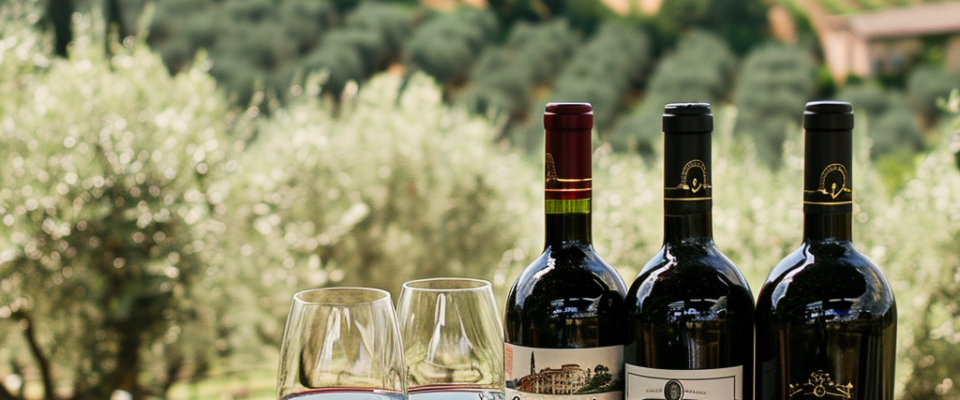Traveling through Tuscany is not only an encounter with majestic landscapes, beautiful cities and historical sites, but also an amazing immersion in the world of tastes and aromas. Considered one of the most culturally rich regions of Italy, Tuscany is renowned for its gastronomic tradition, which is imbued with history, passion and unique recipes.
History of Tuscan gastronomy
Tuscan gastronomy is the result of a long history, which mixes the traditions of ancient peoples, the influence of the Middle Ages and the Renaissance, as well as the unique characteristics of the local climate and nature.
For centuries, Tuscany was a land of farmers and hunters. Its inhabitants depended on the products that they could grow and extract on their land. This is why Tuscan cuisine contains so many vegetables, legumes and grains. Despite the scarcity of meat in ancient times, this also led to the development of special cooking techniques, such as stewing and roasting, that could bring out flavor and aroma from even the simplest ingredients.
During the Middle Ages, Tuscany was one of the richest regions of Italy thanks to the trade in wool and textiles.This led to the flourishing of cities and the development of cultural exchange with other regions and countries. Tuscany’s Mediterranean climate has also contributed to the diversity of agricultural production and the proliferation of different types of fruits, vegetables and olive groves.
Winemaking in Tuscany
Winemaking plays an important role in the culture and economy of Tuscany. The region is famous for its wine traditions, and local wines occupy a well-deserved place in the global wine industry.Tuscany produces a variety of wines, from fine red wines to fresh and aromatic whites.
One of the most famous wine regions of Tuscany is Chianti, famous for its red wines.Grape varieties from this area create unique wines with bright fruit notes and pleasant tannins. Another famous wine region is Montalcino, which produces the prestigious Brunello di Montalcino red wines, which are recognized as some of the best in Italy.
Visiting wineries and tasting local wines is an integral part of a gastronomic tour of Tuscany. Tourists can enjoy a unique experience by visiting wineries where unique wines are produced, experience the craftsmanship of winemakers and learn about the wine production process from vineyard to bottle.
Olive groves and oil of Tuscany
Olive oil is an integral part of Tuscan cuisine and culture.Tuscany is famous for its high-quality olive oil, which is produced from local olive varieties and has a special aroma and taste.
Tuscany’s olive groves are spread throughout the region, and locals respect this unique resource. Olive mills in Tuscany use traditional production methods to preserve the natural flavor and quality of the oil.
Visiting olive groves and participating in the harvest is a great opportunity to immerse yourself in the atmosphere of local agriculture and learn about the olive oil production process. Tourists can also visit olive mills, where they will be offered to taste fresh oil and purchase it as a gift or for their own use.
Traditional dishes of Tuscany
Tuscan cuisine values simplicity, natural ingredients and harmony of flavors. Below are some of the most popular and delicious traditional dishes of Tuscany:
- Ribolla: Traditional Tuscan bread, often served with olive oil, tomatoes or various toppings.
- Ribollita: Tuscan thick soup with beans, tomatoes, vegetables and bread. This is one of the most popular dishes on cold winter days.
- Fiorentina veal (Bistecca alla Fiorentina): A giant beef chop, grilled until golden brown on the outside and juicy on the inside.
- Pappardelle with meat sauce (Pappardelle al sugo di cinghiale): Wide ribbon pastas, usually handmade, served with a rich wild pork meat sauce.
- Crepes: Traditional Tuscan pancakes, often served in different variations: with cheese, vegetables, mushrooms or sweet fillings.
Culinary events and festivals
Tuscany hosts many culinary events and festivals where you can enjoy the region’s great dishes and learn about local culinary traditions. Some of them include:
- Soup Festival: Soup festival held in various towns in Tuscany. Participants can try different types of traditional Tuscan soups and sauces.
- Thrush Festival: Festival dedicated to hunting and cooking, held in the town of Montalcino. Here you can try traditional Tuscan dishes prepared with game, including poultry and wild pork.
Traveling through Tuscany is not only an opportunity to enjoy the beauty of nature and the richness of history, but also a great chance to immerse yourself in a world of amazing tastes and aromas. From superb wines to natural olive oils and exquisite Tuscan cuisine, every gourmet will find something to suit their tastes. A gastronomic journey through Tuscany will leave unforgettable impressions and inspire new culinary adventures.
Tuscan gastronomy stands out for its simplicity, natural ingredients and harmony of flavors. It is also based on the rich history and traditions of the region.
Tuscany hosts many culinary events and festivals, such as Festa della Zuppa and Sagra del Tordo, where you can try a variety of traditional dishes and learn about local culinary traditions.

